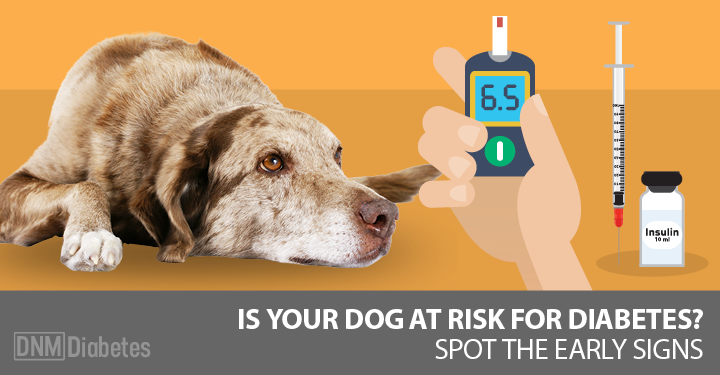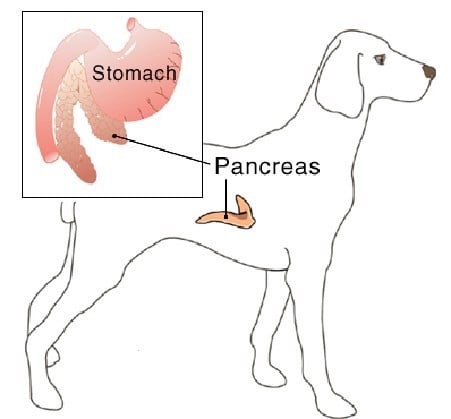
If the dog shows these symptoms the vet will often do diabetic testing to see if sugar or protein are present in the urine. A glucose blood test provides the most accurate results.

Hi everyone Im completely new to diabetes looking for some guidance and help with this my 11yr old border collie Issabella has been diagnosed with diabetes and today we gave her the first insulin injection.
How expensive is it to treat a dog with diabetes. A year of diabetes treatment for a dog costs roughly 700 to 2800. A typical annual cost for a small dog would be 1000. The typical annual cost for a large dog would be around 1500.
If your diabetic pet is relatively easy to regulate you can expect that the monthly costs will be anywhere from 50 to 150 per month. If your pet suffers from complications each complication will add to your tab. Urinary tract infections which are not uncommon with diabetes will cost you the exam fee and the cost of a urinalysis and antibiotic plus a possible urine culture.
Owners with large pets will. When caring for a diabetic dog your costs will vary. Generally speaking pet owners can expect to spend between 43 and 231 per month on diabetes related.
Unfortunately diabetes is not curable in dogs and the vast majority of diabetic dogs require insulin injections for life once diagnosed. Are beagle dogs expensive. Beagle puppies will generally cost between 350 and 1200 when bought from reputable breeders.
Cost of Dog Diabetes Testing Supplies. When caring for a dog with diabetes testing and insulin administration remains key to keeping your dog healthy. Your veterinarian will go over a plan of action with you but there are tips you should know.
Youll be testing your dogs insulin levels a minimum of once per day. The test strips usually come 50 to a box and cost upwards of 35. These strips are key in.
The cost of dog diabetes is highest in the initial stage of treatment but can be a significant financial burden. Depending on the type of insulin and dose. Diabetic Dog Recipe Treats.
Valued at 1975. Diabetic dogs should not be given ordinary treats but that does not mean you cannot treat your pet at all. Whilst there are no treats in pet supply stores which are specifically designed for diabetic dogs this book contains information on what may be safe what to avoid and even how to make your own.
Hi everyone Im completely new to diabetes looking for some guidance and help with this my 11yr old border collie Issabella has been diagnosed with diabetes and today we gave her the first insulin injection. Our main concern after her well being is the cost of this illness and its treatment. At the present time its costing 60 approx per two weeks for syringes and insulin never mind vets fees.
Diabetic dogs suffer from Type I disease where there is destruction of the islet cells in the pancreas. In contrast diabetic cats suffer from Type II disease. We manage these differently in terms of diet.
A high protein low carbohydrate diet is appropriate for cats but it is not what we use in dogs. In dogs extra fibre helps slow down the absorption of carbohydrates so that their blood. This information on median survival time being 2 years is referenced from this study of 180000 insured dogs.
But as the subset of dogs were only insured it might not be truly representative. Many dogs with diabetes wont actually die of diabetes but each dog will need to be assessed on a case by case basis. The cost of diabetes treatment in dogs is generally pretty inexpensive and by keeping good control over your pets diabetes he can continue to lead a happy life for many years to come.
The information on this website is based on our own research and personal experience and is not a substitute for medical advice. Questions about your health and individual situation should be directed to your. A simple test can diagnose diabetes in your dog.
Your vet can also do blood tests to see how diabetes is affecting your dogs body. The sooner you begin treatment the better. Your dogs health will suffer as long as diabetes goes untreated.
Make sure to ask your vet any questions you have. Treating diabetes can be tricky so you want to leave the office with a clear treatment plan in mind. Treating a diabetic dog takes a lot of commitment and hard work and can cost thousands of pounds over their lifetime.
If youre worried about the costs or practicalities of looking after your diabetic dog speak openly to your vet about your concerns. They will talk to you about what you think is right for your dog your lifestyle finances and how youll think youll cope - your vet practice will be able to give you plenty of support in making the right decision for your dog. Yes dogs can live for years with diabetes but it can also be very time consuming and VERY expensive.
My parents had a diabetic dog that got insulin years ago and the dog had to eat twice a day on time so she could also get her insulin on time And if I recall they had to give the insulin first then feed her and sometimes she would not want to eat which then could be very dangerous it always. Diabetes is one of the most common hormonal diseases in dogs Diabetes in dogs can occur as young as 18 months of age. Most dogs are between seven and ten when canine diabetes diagnosis is made.
Approximately 70 of dogs with diabetes are female. Any breed can be affected but dachshunds poodles miniature schnauzers cairn. Diabetic dogs will also cost require more veterinary visits than the average dog.
Insulin prescriptions must be written every 3 4 months and dogs with diabetes are more likely to visit a veterinarian for an emergency such as hypoglycemia. Monthly veterinary bills typically range 0 - 80. 1500 a month on these so my total costs for everything related to her diabetes are approximately 115.
If the dog shows these symptoms the vet will often do diabetic testing to see if sugar or protein are present in the urine. If so this is an indication of diabetes. A glucose blood test provides the most accurate results.
Diabetes is also diagnosed through blood tests in dogs just as it is in humans. The normal glucose level for dogs is 70 to 150 mgdL and dogs with levels over 200 mgdL are considered to be diabetic. In almost all cases of canine diabetes insulin is the recommended treatment.
Insulin must be injected and often needs to be given twice daily. However many dog owners are less than enthusiastic about the thought of giving their dog insulin injections. If you are one of those people who does not like the thought of administering insulin to your dog you may be wondering if there are other options available for treating your diabetic dog.